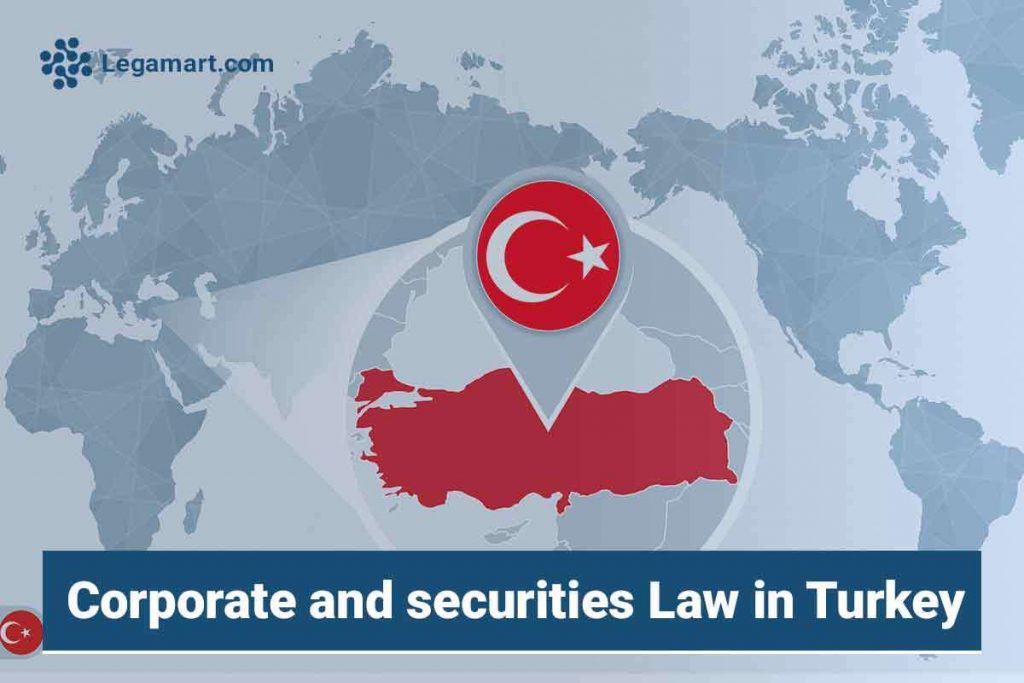Introduction
Corporate and securities law in Turkey is governed by the capital markets law and the commercial code, Turkey’s main legal document. These are expanded upon in secondary regulations issued by independent administrative watchdogs, chief among which is the capital markets board, and further codified in industry-specific statutes (e.g., banking, insurance, financial leasing, factoring).
Although Turkey has a lengthy history of securities markets, the legal recognition of securities as a distinct field of law is relatively recent. Capital markets law no. 2499 was adopted in July 1981 in response to the unpleasant experiences and significant losses that so many people suffered due to the uncontrolled securities offerings in the 1980s.
Under the former CML, the financial markets board (CMB), the regulatory and oversight body for Turkish capital markets, was established and given essential powers. Since its founding, the CMB has taken the initiative to take the lead and, in the course of carrying out its regulatory and supervisory responsibilities, has aided in the development of the markets as well as the invention and introduction of new capital market instruments.
The new capital markets law no. 6362 (CML), which was published in the official gazette on december 30, 2012, took the place of the former CML. The CML’s primary objective is to harmonise Turkish capital markets law with EU standards and the rules of the recently passed Turkish commercial code No. 6102. Although openness, accountability, proportionality, and consistency have been identified as important structural elements, the CML is just a “market regulatory text,” according to the general preamble of the legislation.
Capital Markets, Corporate and Securities Law in Turkey
The capital markets law is the key component of corporate and securities law in Turkey, regulating the capital markets board’s organisational structure as well as all organised markets, capital market institutions, initial public offerings, and capital market instruments. The capital markets law contains practices from nations other than the European Union, such as the United States, even though many of its sections are modelled by EU norms.
Capital market instruments are defined under the corporate and securities law in Turkey as securities, derivative instruments (which include leverage transactions), investment contracts, and any other instrument that the CMB deems to be a capital market instrument in an effort to broaden the scope of services offered to investors in accordance with EU regulations.
Under the corporate and securities law in Turkey, Capital Market laws play a crucial role.
According to CML regulations, the CMB must authorise each and every offer. Making an application for the CMB during offering activities is quick and easy. It would be sufficient for issuers to undertake offers based on the underlying prospectus unless there is an addition or update, which would save market participants time and money. The CML also stipulates that the prospectus has a 12-month validity period. The issuers must create an issuance certificate and be certified by the CMB for any issuances that are not public offerings.
This is best understood in detail by expert corporate lawyers, a list of which is easily available on legamart directory.
Security Management Agreement under the Corporate and Securities Law in Turkey
Beginning in 2020, the capital and securities law in Turkey underwent an update that added numerous components, among them a security agent. Companies have the option to issue secured bonds under the modified CML. As a result, issuers may be able to leverage a particular class of their assets and obtain funding at a cheaper cost than with unsecured loan instruments.
Secondary legislation was anticipated when the CML was modified. The capital markets board published a draught communiqué in October 2020 outlining the requirements and guidelines for the issuing of secured debt instruments as well as the security agent’s responsibilities.
According to the draught communique [another important aspect of corporate and securities law in Turkey], a wide range of assets, including Turkish treasury bonds and notes, real estate, precious metals, investment fund participations, stocks traded on the star market of the Istanbul stock exchange, machinery, and equipment, may be used as “security” for debt instruments. These resources must be in Turkey.
The accompanying security is often increased when periodic revenues from these assets (such as rent, interest, dividends, and so on) are received. It is possible to choose a different course of action, in which case the issuer might continue to receive regular payments while also utilising the asset to raise money.
Within a predetermined ceiling that corresponds to the secured amount, the secured debt instruments may be issued all at once or in a number of tranches. A security management agreement must be signed between the issuer and the security agent prior to the start of the issuance of the secured debt instruments. At least one day before the commencement of the subscription period for the secured bonds, the security agent must receive ownership of or an in rem right to the assets that make up the securities of the debt instruments to be issued.
The assets given to the security agent must be held apart from the Security Agent’s own property and are not liable to foreclosure for any of the security agent’s debts, including public obligations. Additionally, the draught communiqué tackles possible conflicts of interest between the issuer and the security agent and regulates or prohibits specific types of interaction that would otherwise lead to such conflicts.
Investors find relatively swifter dispute resolution remedies available under the amended corporate and securities law in Turkey in cases of default. The security agent is empowered to convert any security asset under its management into cash by any means, including direct sale to a third party or through auction.
By doing this, the security agent is exempt from having to inform the person that is in default of the default, give them a chance to remedy it, or ask a judicial or administrative body for authorization or consent. Additionally, the draught communiqué specifies in unambiguous terms the time frame within which such liquidation procedures must begin after default.
Shareholders meetings and voting
Under corporate law in Turkey, the voting requirements can be categorized into two:
Joint-stock company (JSC)
The attendance of shareholders who represent one-fourth of the share capital is sufficient for the general assembly to meet unless the legislation or the rules of association specify a greater quorum. Throughout the meeting, this quorum must be preserved. The shareholders are called to a second meeting if this quorum is not reached at the first meeting.
No matter how much share capital they represent, current shareholders may vote on any proposal at the second meeting. Passage of resolutions requires a simple majority of votes. The Turkish commercial code does, however, provide qualified meeting and resolution quorum requirements for some matters, such as changing the company’s nationality, the scope of its activities, or its legal structure.
In JSCs, the board of directors meets with the majority of members, and motions are adopted by a majority of the members present at the meeting unless a greater quorum is needed by law and/or the articles of the organisation. Further, as per Turkish commercial code no. 6102, article 553/1, the board of directors have liabilities for the performance of their obligations, and in the case of a violation, they could be held responsible for the damages caused to the company.
Limited liability companies (LLC)
Unless otherwise specified in the articles of association, all general assembly decisions, including election decisions, need the vote of at least half of the partners present at the meeting. Quorum requirements for qualified meetings and resolutions are now part of the Turkish commercial code for problems like changing the scope of limited liability companies’ activity and issuing privileged shares, among others. Voting and quorum privileges must correspond to shareholdings. However, many share classes with various voting rights may be issued. Although a privilege may only be awarded to the share (or a class of shares), not the shareholder(s) in general, a firm may issue privileged voting shares.
The legislation specifies the quorum needed to adopt a resolution in LLCs, not the quorum for managers’ meetings. Resolutions are carried by a majority of votes if there are many managers. The quorum for assembling and a higher quorum for passing resolutions may be specified in the articles of incorporation.
Controlling Shareholders Duties
Corporate law in Turkey does not impose any obligations on controlling shareholders with regard to the business or non-controlling shareholders. All dominant shareholders must, however, utilise their rights while abiding by the rules of good faith. Additionally, minority stockholders are given preferential treatment. Furthermore, corporate law in Turkey regulates provisions pertaining to group companies.
Article 202 of the TCC specifically states that a dominant (controlling) company may not exercise its dominance in a way that could result in a financial loss for a subsidiary (for example, instruct the subsidiary to be the guarantor of a loan), unless this loss is compensated within the same financial year or a right to claim compensation is granted to the subsidiary within the same financial year.
By bringing legal action against the dominant firm, the owners and creditors of the subsidiaries can demand compensation for the losses suffered by the latter.
Conclusion
The Commercial Code and the Capital Markets Law are the main legislative devices governing corporate and securities law in Turkey. The recent amendments have also brought the innovative framework of the security management agreement into the picture. Voting requirements under the law have been classified into joint-stock companies and LLPs. Lastly, there are no distinguished duties for controlling shareholders under corporate law in Turkey except for an inevitable carve out for good faith.
If you want to immigrate from Turkey to Norway, then here a interesting read for you.




